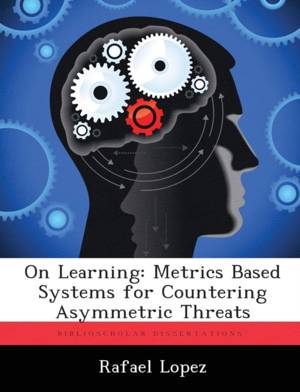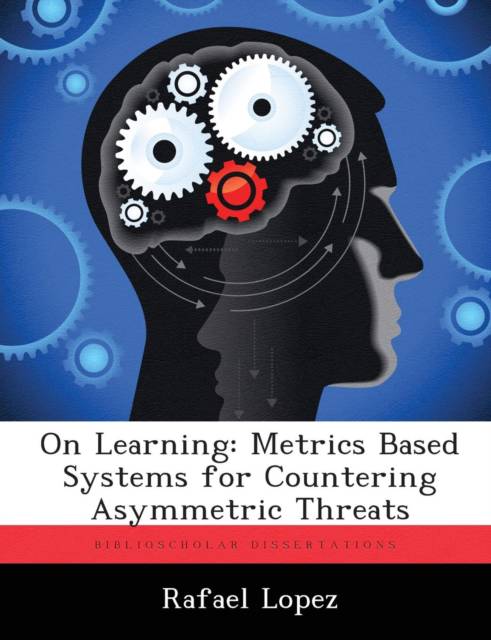
- Afhalen na 1 uur in een winkel met voorraad
- Gratis thuislevering in België vanaf € 30
- Ruim aanbod met 7 miljoen producten
- Afhalen na 1 uur in een winkel met voorraad
- Gratis thuislevering in België vanaf € 30
- Ruim aanbod met 7 miljoen producten
Zoeken
€ 54,45
+ 108 punten
Omschrijving
An organization learns only if it measures. This is the simple underlying idea of this monograph. It is important because the current international system, with all of its conflict and tension, requires the U.S. Army to learn a great many things in order to fulfill its mandate of winning the nation's wars. Ignoring this simple idea condemns the nation to repeating previous mistakes in national defense with increasingly dangerous consequences. While doctrine serves to capture generally accepted methods and ideas that have an expectation of working, by requiring institutional consensus a delay in the development of doctrine is inevitable. The delay allows smaller, more agile organizations to target weaknesses that exist at the operational and strategic level with the commitment of asymmetric assets. The author primarily seeks to identify why a learning organization is critical to defeating asymmetric threats. Secondly, the author will provide evidence supporting that metrics rather than doctrine serves as the cornerstone for learning in the transformational processes currently underway in the U.S. Army. Lastly, the author will offer theoretical metrics for gauging the key indicators of progress in transformation: organizational learning rates. The intent is to foster discussion on not only why the Army should be gauging its learning rates as it aspires towards becoming an agile learning organization, but also how to measure its learning rates. Why is learning critical? It is critical because transformation is a necessary part of warfare in the 21st Century. The emergence of asymmetric threats, enhanced by global connectivity, makes the need for agile organizational structures preeminent amongst the Department of Defense methods for meeting the national strategies outlined by the president. Why measure learning? Doctrine cannot be the measure of learning for organizations. It is far too slow and unresponsive in its development to be an effective metric. The system its
Specificaties
Betrokkenen
- Auteur(s):
- Uitgeverij:
Inhoud
- Aantal bladzijden:
- 74
- Taal:
- Engels
Eigenschappen
- Productcode (EAN):
- 9781288292370
- Verschijningsdatum:
- 13/11/2012
- Uitvoering:
- Paperback
- Formaat:
- Trade paperback (VS)
- Afmetingen:
- 189 mm x 246 mm
- Gewicht:
- 149 g

Alleen bij Standaard Boekhandel
+ 108 punten op je klantenkaart van Standaard Boekhandel
Beoordelingen
We publiceren alleen reviews die voldoen aan de voorwaarden voor reviews. Bekijk onze voorwaarden voor reviews.











